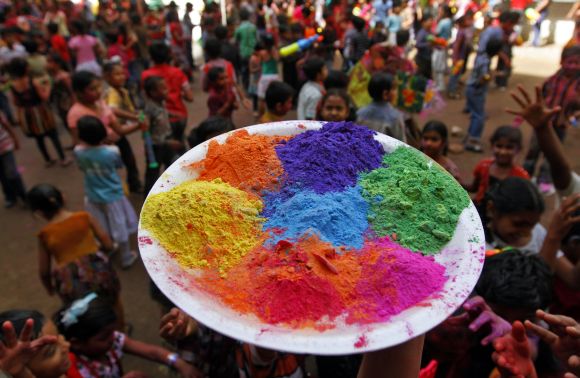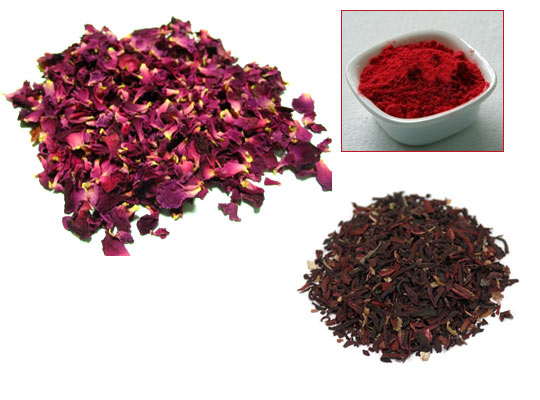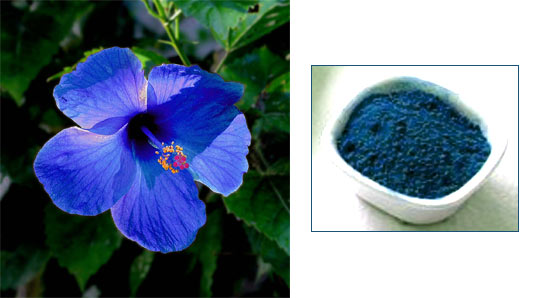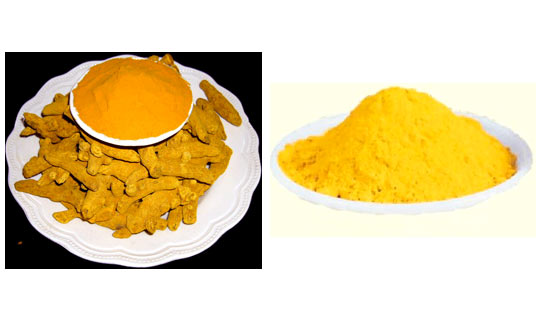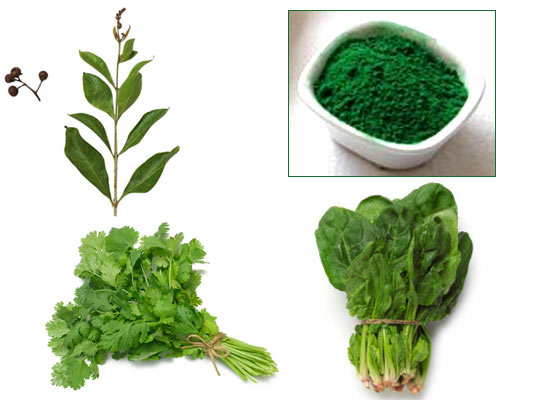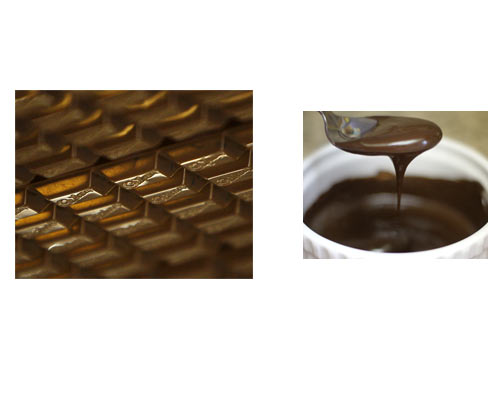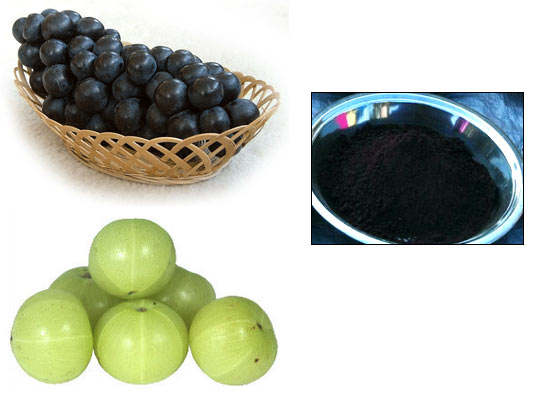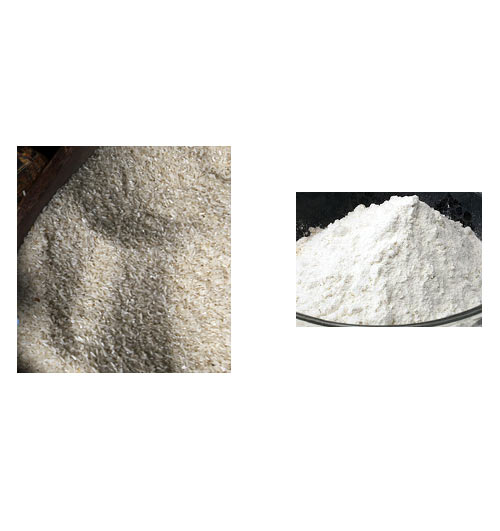 | « Back to article | Print this article |
Celebrate Holi with natural colours, here's how
Why invest in toxic colours and risk your skin when you can make them in your own kitchen?
Holi is the festival of colours.
It is a time when the passionate reds and vibrant yellows, the soothing greens and dazzling oranges should add to the joy of the festivities.
Why then should we mar that by using colours that are toxic and can harm our skin and eyes?
This year let us all take a pledge to play safe Holi.
What better way than to play with natural colours.
Colours that not only are non toxic and fun but some even have medicinal benefits.
Upload pictures of your Holi celebrations on Rediff ZaraBol along with a short description of what you did on Holi.
Want to share a Holi video? Upload it on Rediff iShare.
We will publish the most interesting responses right here on Rediff.com.
Please click NEXT to continue reading...
Celebrate Holi with natural colours, here's how
Red Colour
Dry
Red sandalwood powder or raktachandan as it is called. It is often used in face packs because it is beneficial for the skin.
Dry the petals of a hibiscus flowers. Make sure they are kept in the shade to dry. Add flour to it to form a red powder.
The sinduria fruit have deep red seeds which can be powdered to yield dry red powder.
Just shower red rose petals on your loved one.
Wet
Mix red sandalwood powder or vermillion in water or milk and boil for a minute.
The peels of the pomegranate fruit when boiled yield red coloured water.
Mix a pinch of lime powder (chuna used in betel leaves) or a few drops of lime juice with a couple of spoons of turmeric powder and add a few drops of water to form a paste.
It will yield a bright reddish-orange colour. However it should be diluted in at least ten litres of water before using.
Rhododendron or hibiscus flower soaked in water overnight yield red water. Similarly if the purplish pink periwinkle, bougainvillea or oleander flowers are soaked overnight or boiled in water they yield a pinkish red water.
Dilute the red tomato juice in water to remove its stickiness and use.
Boil a chopped beetroot in water for the deep red colour.
If adults are playing then water diluted red wine filled into pichkaris and balloons will be a lot of fun
Boil a handful of onion peel in a litre of water to get a pale reddish coloured water.
Nodules of creepers like the pui also produce a reddish dye which when soaked in water gives the desired colour.
The Indian Coral tree found in the coasts of India bear large red flowers. These when soaked in water give red colour.
Boiling the wood of a Madder tree yields a deep red colour.
Blend strawberries and then dilute it in water. You can use diluted watermelon juice as well.
Celebrate Holi with natural colours, here's how
Blue Colour
Dry
Jacaranda flowers that bloom during this time of the year, when dried in the shade and powdered gives a blue powder.
Blue Hibiscus is found in Kerala. This too when dried in the shade and powdered gives a blue powder.
Wet
Crush fruits of the Indigo plant in water for the desired colour.Celebrate Holi with natural colours, here's how
Yellow Colour
Dry
Mix a couple of teaspoons of turmeric powder with four teaspoons of gram flour or besan.
Both are beneficial for the skin and have been used as an ubtan during bath time.
Dry the petals of marigold or yellow coloured chrysanthemums in the shade.
Crush it into a fine powder and mix it with equal quantity of gram flour.
The dried rind of the bael fruit when ground also yields a yellow coloured powder.
Melt butter and add flour to it. Mix it to form a paste. When it dries up use it as a powder.
Wet
Add a teaspoon of turmeric powder to a litre of water.
Soak a handful of methi seeds in a litre of water overnight for a pale yellow colour.
Boil pumpkin and then blend it well. Dilute in water to get a bright yellow liquid.
Soak overnight or boil a few marigold flowers in water.
Diluted musk melon juice should some excitement during this festival of colours.
Boil a cup of pulses and then blend it well. Finally add it to a couple of litres of boiling water and dilute it well.
Let it cool to form the perfect yellow water for this Holi.
Celebrate Holi with natural colours, here's how
Green colour
Dry
Mix mehendi or henna powder with same quantity of flour for a green shade.
It is better to use this as a dry colour which can be brushed off easily.
Once a paste of it is formed it tends to leave a mark.
Dry the leaves from a Gulmohar tree and then finely powder it.
Wet
Mash the pulp of a couple of avocadoes and then boil t in water, stirring constantly. Let it cool before use.
Dilute the juice of green grapes and use. Diluting it with water will reduce its stickiness.
Boil green tea in water. Allow it to cool and then use.
Use a blender to mix holy basil / coriander / neem / mint leaves with water. Strain out the green liquid and use.
Boiled green vegetables like spinach / green peas / broccoli can be blended and then mixed with a little flour and cream to form a thick paste.
Boil a handful of pistachios in water diluted milk and blend it well to get a pale green coloured water.
Celebrate Holi with natural colours, here's how
Saffron/Orange Colour
Dry
Use sandalwood powder.
Dry palash flowers and power them. Legend has it that Lord Krishna used to play Holi with palash flowers.
Collect the stalks of Harashringar or Parijatak flowers during the winter season.
Dry them and just before the festivities begin, soak them overnight in water for the perfect orange colour.
Shower your friends and family with the petals of bright orange gerbera flowers.
Wet
Soak a few strands of saffron in water or boil it in water diluted milk.
Stir a teaspoon of sandalwood powder in water.
Boil the petals of flower of the red silk cotton tree.
Boil first and then soak overnight a few palash or 'Flame of the Forest' flowers that bloom during this season.
Add little turmeric powder to sandalwood powder and make a paste of it with rose water to get an orangish colour. Dilute with water and use.
Boil and then blend a few carrots. Add water to it to make it watery. It gives a fine orange colour.
Celebrate Holi with natural colours, here's how
Brown Colour
Dry
Cocoa or chocolate powder is a fun option to try out this time.
Soak a cup of almonds over nights. Without peeling the skin, crush it well and mix it with almond or olive oil.
The oil is healthy for the skin and the whitish brown almond flakes will add colour and also act as a scrub.
Wet
Dilute in water kattha that is added to betel leaves for a brown liquid
Blend a couple of chikoos till they become pasty. Dilute it in a couple of litres of water to remove the stickiness
Boil a couple of teaspoons of coffee in a litre of water. Allow it to cool and then use.
If none of these tempt you then just play around with some melted chocolate.Celebrate Holi with natural colours, here's how
Black Colour
Dry
Brush the outside of steel container with mustard oil and hold it over a candle flame.
The black soot that forms is natural kajal and can be used as a powder.
Take out the crushed tea from tea bags and mix it with either almond or olive oil. Use the black oily paste.
You have the colour and the oils are good for the skin too.
Wet
In an iron utensil boil a few pieces of Indian gooseberry or amla and let it soak overnight to produce black water.
Dilute the juice of black grapes to remove the stickiness and use
Boil tea with cloves and cinnamon to get a brownish black liquid. Allow it to cool and then use.
Celebrate Holi with natural colours, here's how
White Colour
Dry
Use rice flour or atta.
Use whipped cream, the fresh cream or malai of the milk or even the coconut malai -- it is not really dry but just as much fun.
Shower the petals of white chrysanthemum, daisy or even the more common garden frangipani.
Wet
Dilute milk with water and play.
Dilute some unsweetened yogurt in water to get 'white water'.
Boil rice or potatoes. Mash it well to form a thick paste.
Boil a few peeled apples. Blend it well and then dilute it in water to get a yellowish tinged white water.
I am sure that after going through these ideas you will also be inspired to concoct your own home-made colours with ingredients that are safe and found right inside your homes or terrace gardens.
Do share your colour ideas too.
Till then I pray that may your life always be colourful. Happy Holi!
